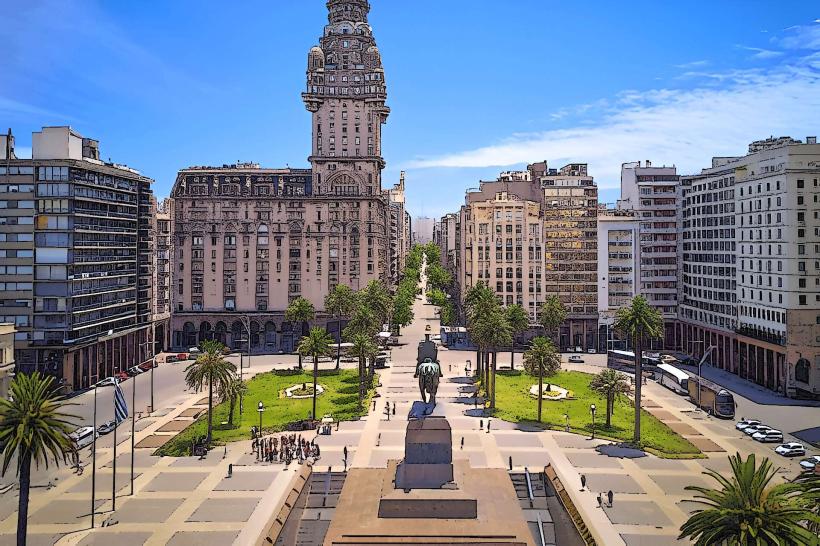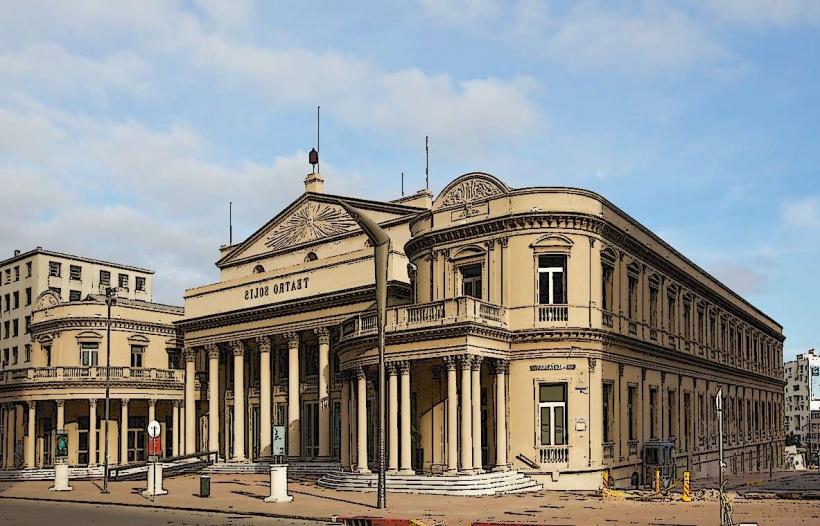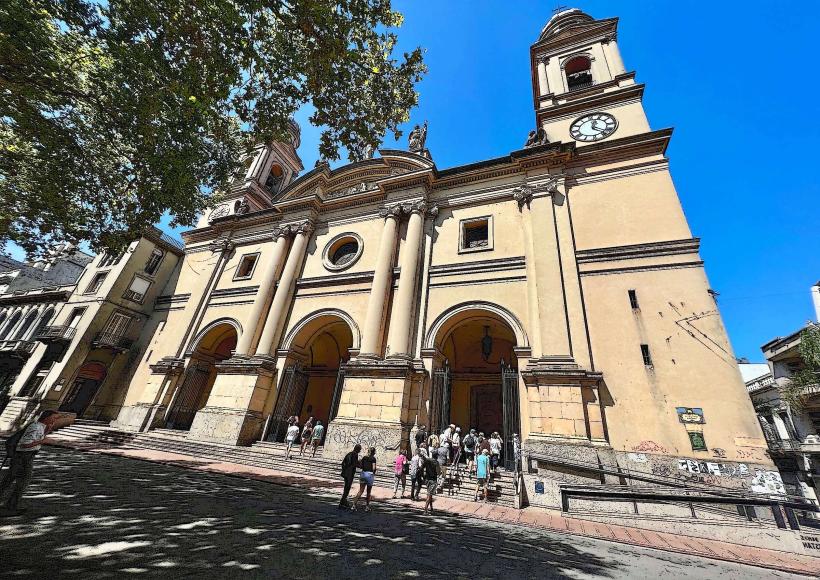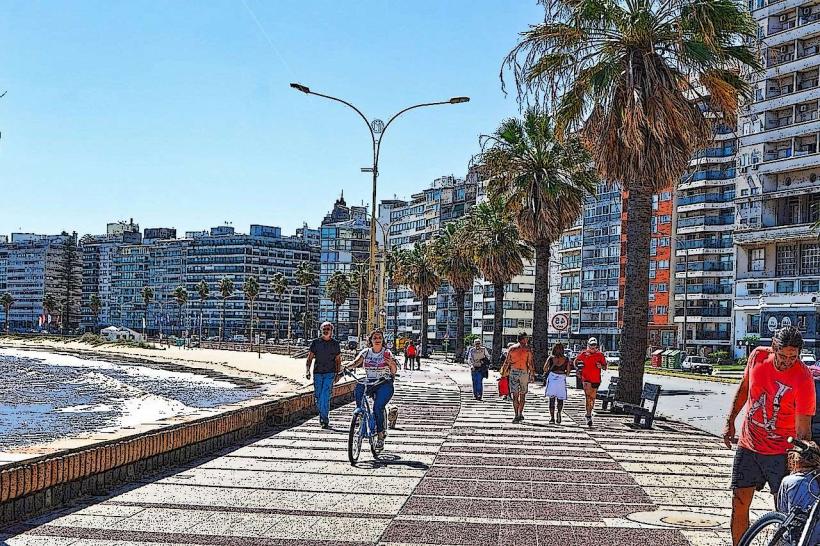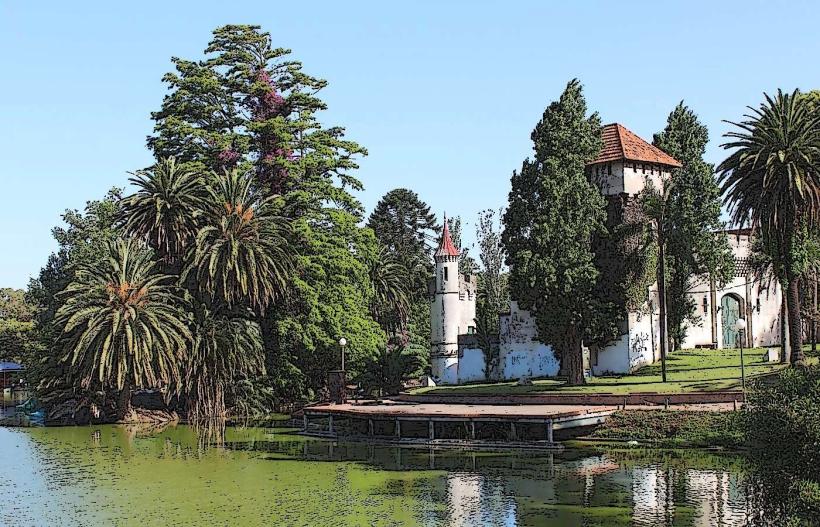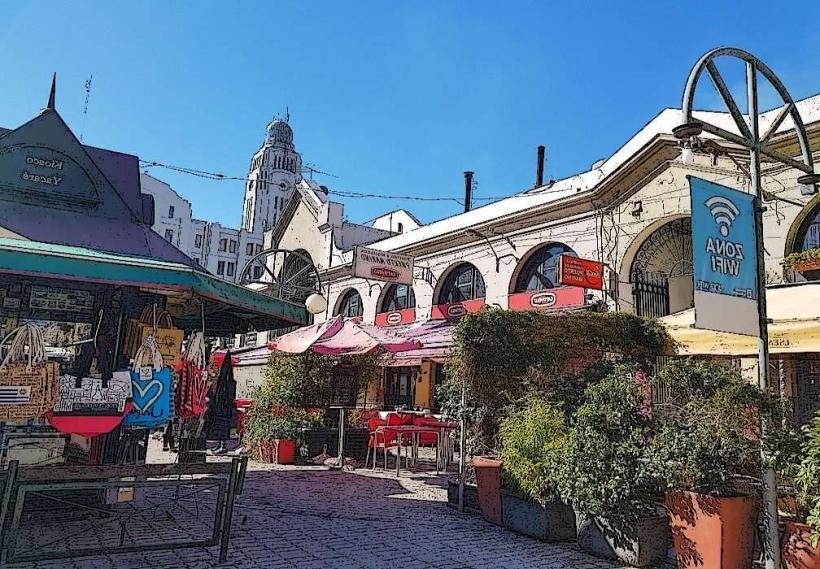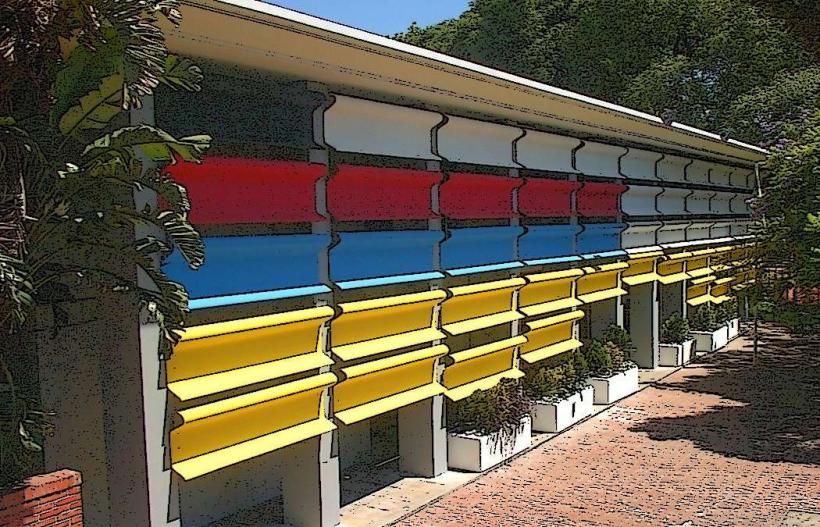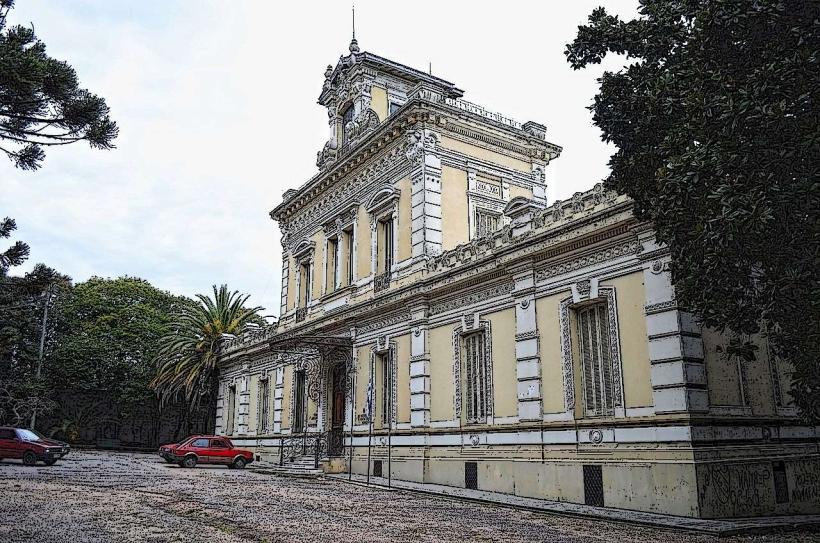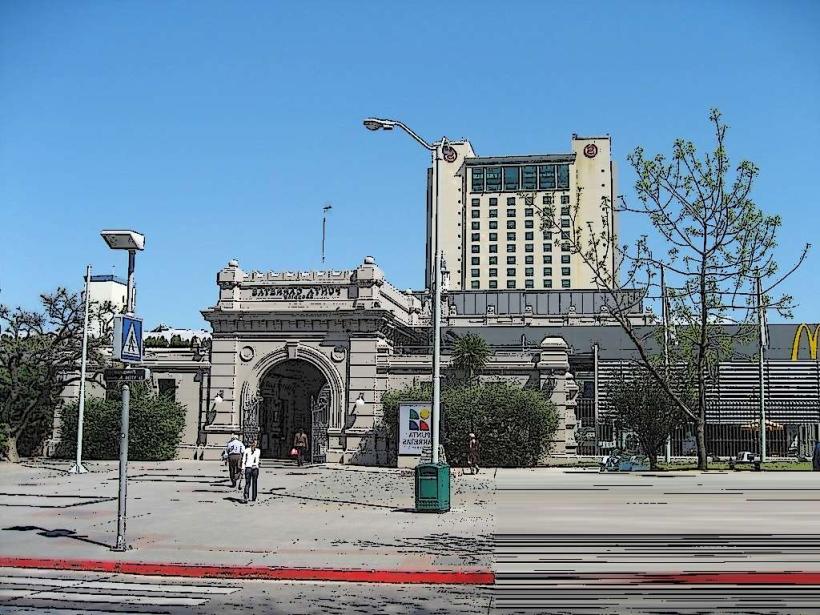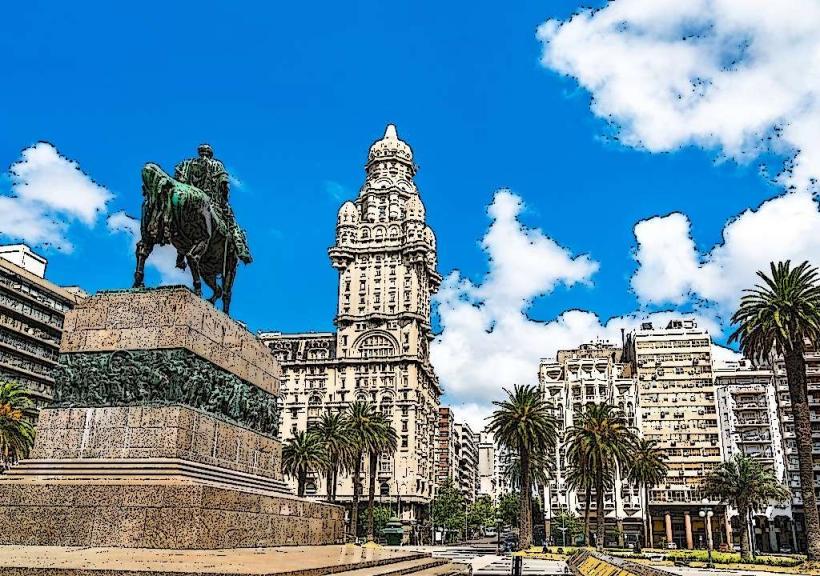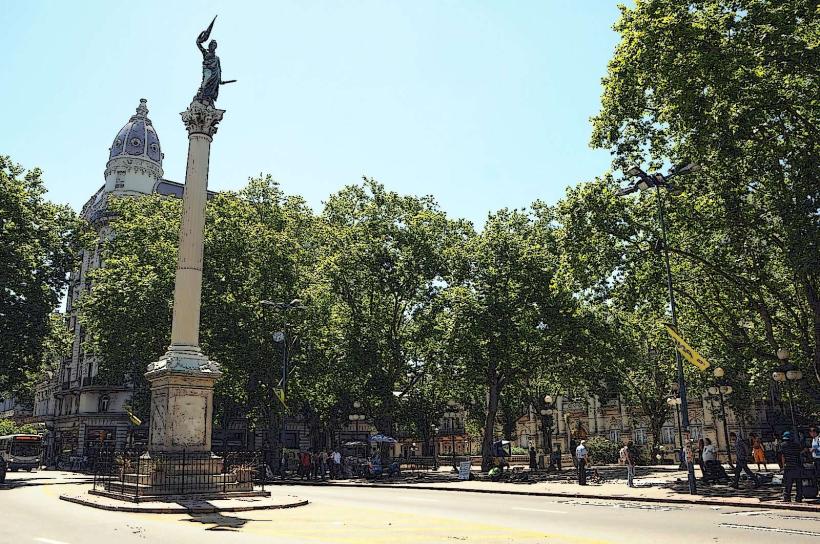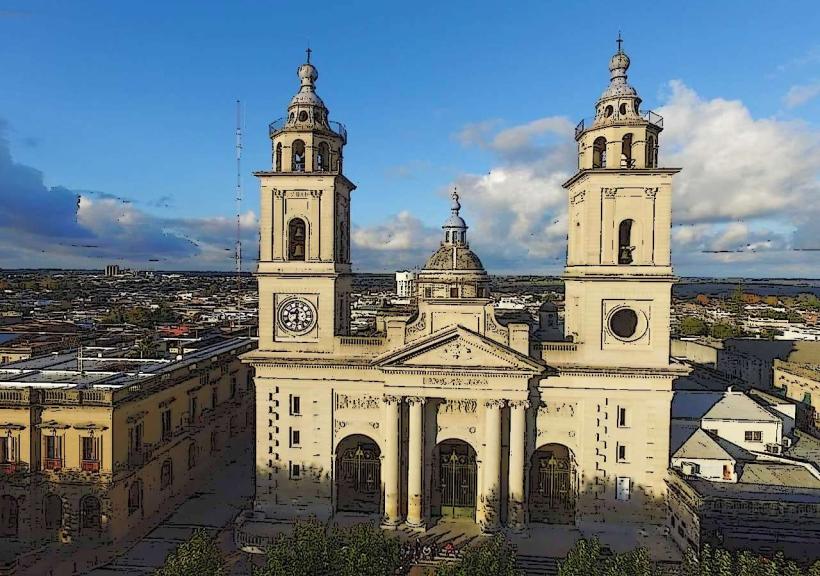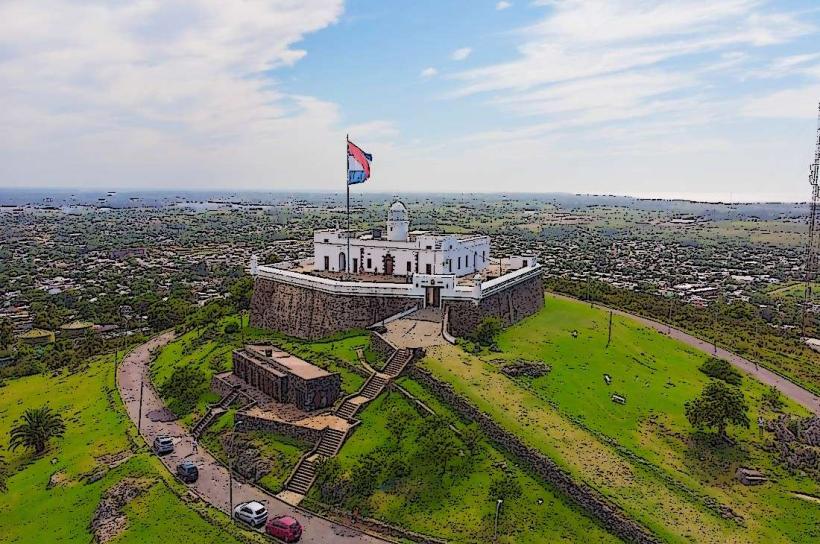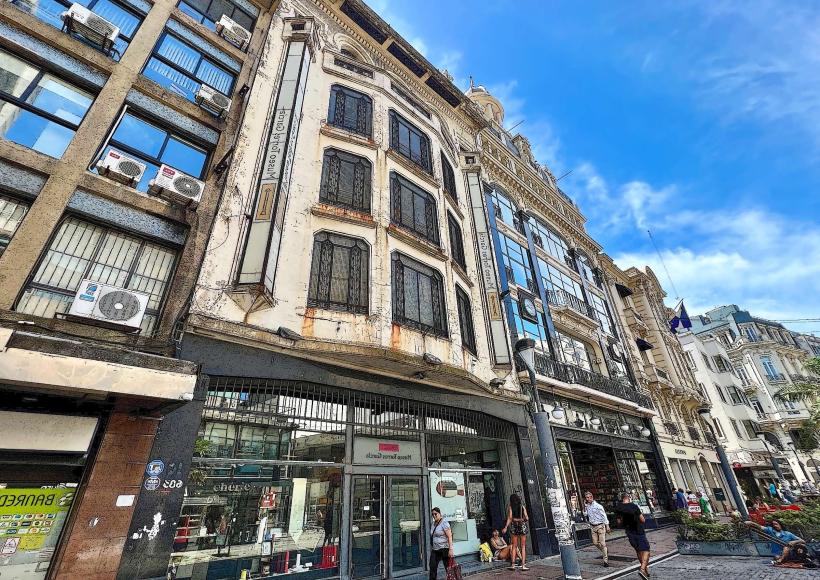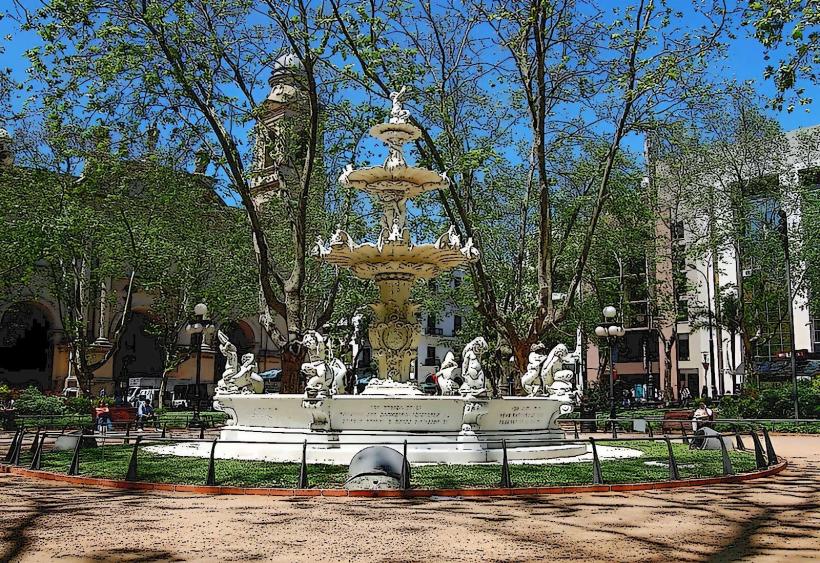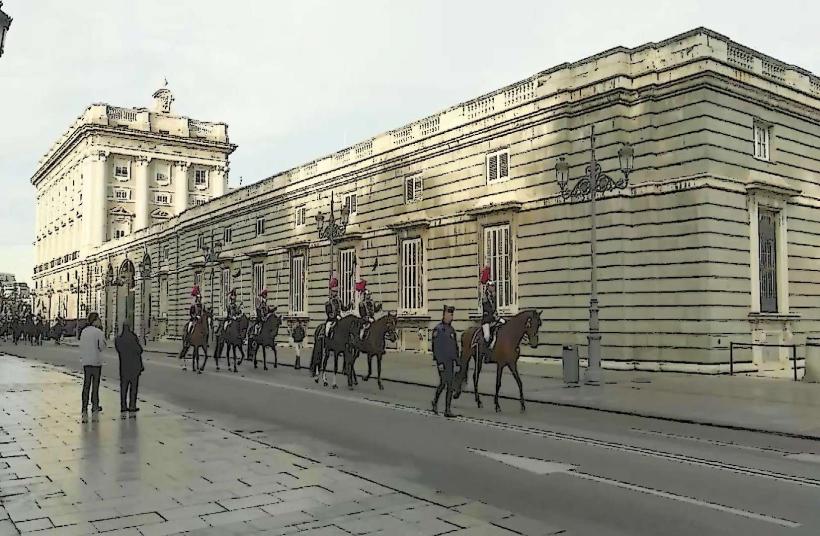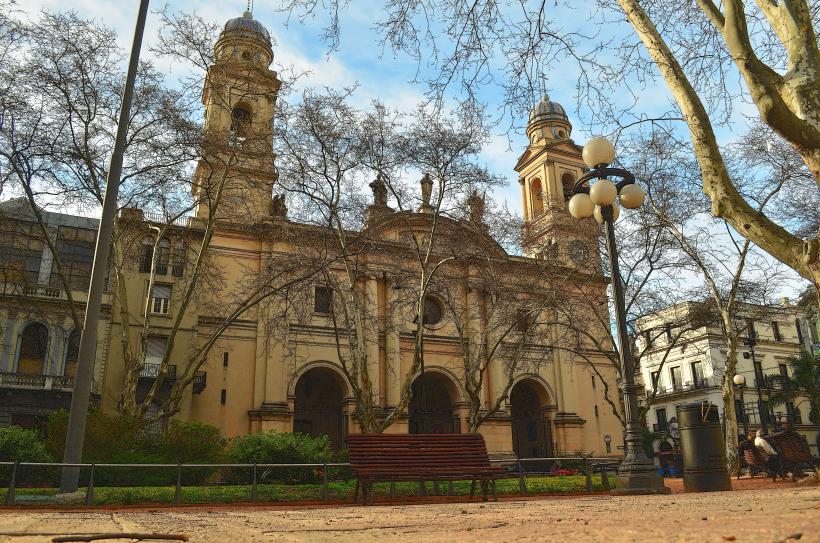Information
Landmark: Faro de Punta CarretasCity: Montevideo
Country: Uruguay
Continent: South America
Faro de Punta Carretas, Montevideo, Uruguay, South America
Faro de Punta Carretas: A Historic Maritime Landmark in Montevideo
The Faro de Punta Carretas (Punta Carretas Lighthouse) is one of Montevideo’s most iconic and historically significant landmarks. Situated at the southern tip of the Punta Carretas peninsula, it has guided maritime traffic along the Rio de la Plata for over a century. The lighthouse not only holds historical and navigational importance, but it is also a symbol of the city's coastal heritage and a popular tourist attraction in Montevideo.
Historical Background
Construction and Purpose
The Faro de Punta Carretas was completed in 1936, a time when Uruguay’s increasing port activity and maritime traffic required the establishment of reliable navigation aids along the Rio de la Plata’s coastline. The lighthouse was specifically built to provide safe passage for ships entering the port of Montevideo, ensuring they could safely navigate the treacherous waters near the peninsula.
It was built on the site of an earlier lighthouse, which had been in operation since 1876, though the original lighthouse structure was much smaller and was replaced due to advancements in maritime navigation technology.
Design and Architecture
Distinctive Structure
The Faro de Punta Carretas stands 22 meters (72 feet) tall, and its white and red striped design makes it easily recognizable from afar. The lighthouse has a classic design, with a conical tower that tapers as it rises, making it a standout feature on the Montevideo coastline. It has a glass lantern room at the top, which houses the lighthouse’s light source, making it visible for several kilometers out at sea.
The lighthouse’s elevated position on the peninsula offers commanding views of the surrounding areas, including the Rio de la Plata, Punta Carretas beach, and Montevideo's coastline. This design was carefully chosen to maximize visibility for ships approaching from different directions.
Light and Function
The lighthouse emits a flashing white light at regular intervals, serving as a vital reference point for maritime traffic. Its powerful light source can be seen up to 10 nautical miles (about 18.5 kilometers) away, making it an important beacon for ships, especially those navigating the often-challenging waters of the Rio de la Plata estuary.
Cultural and Touristic Significance
The Lighthouse and its Surroundings
The Faro de Punta Carretas is not only a working maritime aid but also a popular tourist attraction. Visitors to the area can enjoy a peaceful walk along the Punta Carretas peninsula, with the lighthouse offering an excellent viewpoint of the city and the river. The nearby Punta Carretas Shopping center and Punta Carretas Beach make the area a popular destination for both locals and tourists looking to relax, shop, and enjoy the coastal scenery.
The lighthouse itself has become an iconic feature of Montevideo's southern coastline, representing both the city’s maritime history and its ongoing connection to the sea.
Connection to Punta Carretas Neighborhood
The Punta Carretas neighborhood, where the lighthouse is located, is one of Montevideo's most affluent and vibrant areas. Known for its residential buildings, restaurants, and shopping malls, this neighborhood has a unique blend of historical charm and modern amenities. The lighthouse adds a distinctive touch to the area’s coastal landscape, with its historic structure offering a glimpse into the city’s past and its relationship with the sea.
Why Visit the Faro de Punta Carretas?
Historical Significance: As a working lighthouse for over 80 years, it represents Montevideo's maritime history and the city’s strategic importance as a port.
Stunning Views: The lighthouse offers panoramic views of Punta Carretas, Punta Brava, and the Rio de la Plata, making it an ideal spot for photography and sightseeing.
Coastal Experience: Situated in one of Montevideo’s most scenic neighborhoods, the lighthouse provides an opportunity to explore the coastal beauty of the city, including nearby beaches and parks.
Cultural and Architectural Interest: The lighthouse itself is an example of early 20th-century coastal architecture and provides insight into the aesthetic and functional design of such maritime structures.
Leisure and Recreation: The nearby Punta Carretas Shopping and Punta Carretas Beach offer opportunities to relax, shop, and enjoy local food, making the area an excellent destination for a day out.
Conclusion
The Faro de Punta Carretas is more than just a navigation aid; it is an essential part of Montevideo’s historical and cultural landscape. Its distinctive design, historical importance, and stunning location make it a must-visit landmark for those interested in the city’s coastal heritage, as well as for those simply seeking a peaceful spot to enjoy panoramic views of Montevideo’s waterfront. Whether you are a history enthusiast, a photography lover, or just someone looking to take in the beautiful coastal scenery, the Faro de Punta Carretas offers a perfect experience.

